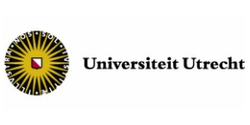Combined PhD - Lecturer Position in Inclusive Food Transitions
Updated: 16 May 2024
We are seeking a highly motivated and talented PhD candidate to join our research team. The successful candidate will work on an interdisciplinary project that combines state-of-the-art insights from social psychology and democratic theory to investigate how shared values and collective identities are constructed and navigated in community gardens.
Your job
While community gardens have great potential in the transition to a just and sustainable agri-food system, they tend to appeal to a particularly homogenous group, often highly educated individuals with strong environmental values. They tend to exclude other social groups who, for example, prioritise food security over environmental sustainability. Furthermore, within community gardens value tensions can arise in a desire to be inclusive while retaining a core identity. This interdisciplinary PhD research project therefore aims to explore the relation between individual values and the construction of a collective identity, as well as assess the democratic governance structures suitable to navigate this relationship in community gardens. It will explain which values underlie the decision-making processes, how they impact community-building, and which democratic processes are best suited to navigate potential tensions in values in community gardens.
The PhD candidate will be part of a cross-section collaboration between the Environmental Governance and the Innovation Studies group at the Copernicus Institute of Sustainable Development (Faculty of Geosciences). The candidate will be supervised by Dr Julia Tschersich, Dr Tina Venema and Dr Giuseppe Feola.
This PhD project will address the following research questions:
- What role do collective values play in democratic decision-making and engagement in community gardens
- How do individual values influence social identification with the community garden and engagement in group activities, and how does this change over time?
- How are collective identities constructed in community gardens, and what is the role of individual values, group dynamics and processes of decision-making and engagement?
- What implications can be derived from this research for strengthening community gardens and their contribution to sustainability transitions?
This PhD position is an exciting opportunity to investigate the potential of community gardens and other grassroots innovations to contribute to a just sustainability transition of the food system, as it has implications for the potential of communities to reach broader participation while maintaining their key identity and transformative potential.
This project will be based on transdisciplinary research in close collaboration with community gardens in the Netherlands and a second country that will be determined together with the PhD candidate based on scientific relevance, the candidate's interests and language skills. This project will apply a mixed methods approach, combining quantitative and qualitative research methods, including literature review, interviews, surveys, participatory observation and transdisciplinary workshops.
This six-year position consists of 60% research on the project described above and 40% teaching. The candidate is expected to obtain a doctoral degree from Utrecht University within six years, based on published articles in top-tier academic journals. In addition, it is possible to obtain the University Teaching Qualification.
Requirements:
We are looking for a candidate with the following qualifications:
- a Master's degree in Social Sciences (e.g. Political Science, Sociology, Psychology, Human Geography), preferably with an interdisciplinary orientation and a focus on one or more of the following areas: sustainability transitions, environmental governance, behavioral studies, food systems, democratic theories and practices, community-led and collective action;
- qualitative research skills and proven experience with field research (e.g. interviews);
- interest in quantitative research, experience with quantitative analyses is a plus;
- ability and willingness to work across different disciplines, experience in transdisciplinary research is a plus;
- affinity with teaching, preferably previous teaching experience;
- full proficiency in English and excellent English communication skills (both written and oral);
- good proficiency of the Dutch language (or willingness to learn within two years)
- additional language skills are a plus;
- ability to work well independently as well as under supervision;
- ability to work under time pressure and to navigate multiple tasks simultaneously.
Note: you do not need to fulfill all of these requirements. Please indicate your strengths and interests in the letter of motivation.
Salary Benefits:
We offer:
- a position for one year, with an extension to a total of six years upon successful assessment;
- a working week of 36 hours and a gross monthly salary between €2,770 and €3,539 in the case of full-time employment (salary scale P under the Collective Labour Agreement for Dutch Universities (CAO NU);
- 8% holiday pay and 8.3% year-end bonus;
- a pension scheme, partially paid parental leave and flexible terms of employment based on the CAO NU.
In addition to the terms of employment laid down in the CAO NU, Utrecht University has a number of schemes and facilities of its own for employees. This includes schemes facilitating professional development, leave schemes and schemes for sports and cultural activities, as well as discounts on software and other IT products. We also offer access to additional employee benefits through our Terms of Employment Options Model. In this way, we encourage our employees to continue to invest in their growth. For more information, please visit Working at Utrecht University.
36 - 40 hours per week
Princetonlaan 8a

